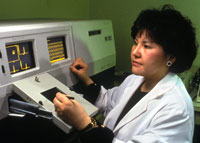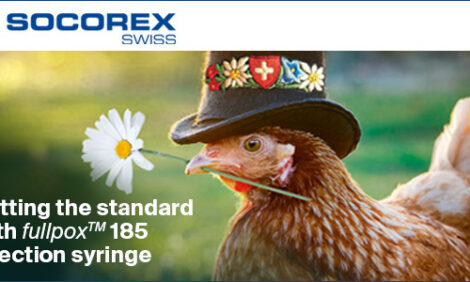



The Poultry Pantry: Plums, Probiotics, Safflower and Tea
The title refers to a report of work carried out by the USDA Agricultural Research Service showing that all these products can help control coccidiosis in broilers.Agricultural Research Service immunologist, Hyun Lillehoj, has been working with colleagues in the agency and around the world to find ways of strengthening the poultry immune system with dietary supplements.
Boosting bird health helps poultry ward off the effects of avian coccidiosis, a disease estimated to cost producers worldwide more than $1.2 billion every year. Chickens and other birds develop the disease after becoming infected with the parasite, Eimeria. As drug-resistant strains of the pathogen evolve, producers are anxious to find alternative control methods to current drug protocols.
Dr Lillehoj works at the ARS Animal Parasitic Diseases Laboratory in Beltsville, Maryland. She was one of several researchers to collaborate on the first study that assessed the use of green tea to improve poultry health.

Dr Lillehoj and Seung Jang, an immunologist at South Korea's Gyeongsang National University College of Veterinary Medicine, found that chickens that consumed ground green tea for two weeks before parasitic infection produced significantly fewer faecal E. maxima oocysts than the control group. Since these oocysts transmit the parasite from infected birds to healthy birds, this finding could help reduce the spread of infection in poultry houses.
Working with ARS visiting molecular biologist, Sung-Hyen Lee, and Imagilin Tech LLC, in Frederick, Maryland, Dr Lillehoj evaluated the effects of adding commercial probiotics to poultry diets. They found that chickens eating diets supplemented with Pediococcus-based probiotics reduced their oocyte production, upped production of cytokines essential for a strong immune response, and gained weight.
A combination of Pediococcus and a yeast-based commercial probiotic product had similar benefits for the chicken immune system. In addition, chickens that consumed a probiotic combination of lactic acid bacterium and yeasts showed a significant antibody response to parasite infection.
Dr Lillehoj, Lee, Jang and other colleagues from South Korea collaborated with scientists at the Rural Development Administration – South Korea's national agricultural research organisation – to assess the use of other phytonutrients. They found that plum powder supplements stimulated spleen immune cell production and killed tumor cells. Infected poultry fed with the supplement also gained weight and shed fewer parasites. Supplements of safflower, which have been used by traditional Chinese practitioners for thousands of years, were found to be similarly beneficial.
May 2009








